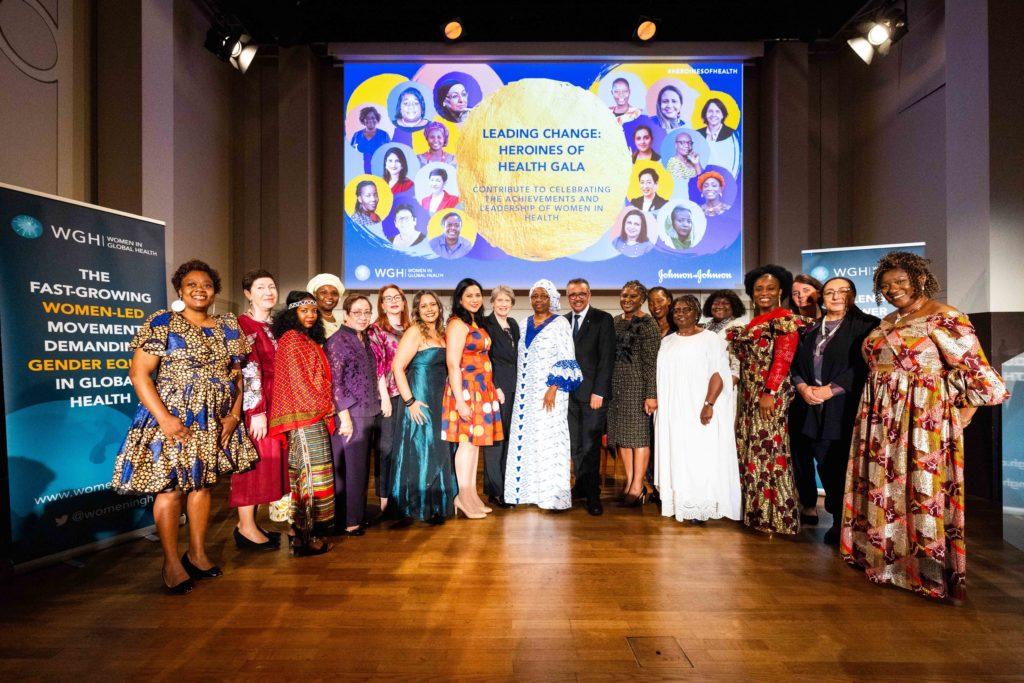
Global health awards recognize outstanding women in health
From the front lines of the Ukraine war to the remotest parts of rural Ethiopia, the 17 awards given to the 2022 Heroines of Health Awardees recognised an extraordinary contribution to global health. (Read their remarkable stories in full)
The awards, given out at the gala event “Leading Change: Heroines of Health” on 17 October in the margins of the World Health Summit put the spotlight on traditionally unrecognized women who are the backbone of global health systems. Women account for 70 percent of the health workforce and 90 percent of frontline workers, yet they continue to be clustered into lower status, lower paid and unpaid roles and they are too often left out of decision-making.
Each of the Heroines shared stories about their work to lead change, highlighting different contexts, detailing their achievements for important advances in global health and calling on the health leaders present to take action to deliver equity in the form of safe, decent, and fairly paid work. As doctors, community health workers, gender advocates and global health leaders, all of the women awardees worked under the most extreme circumstances during the COVID-19 pandemic to deliver health programs.
Her Excellency the First Lady of Namibia, Ms Monica Geingos gave a keynote address paying tribute to the heroines, highlighting their achievements, which were particularly remarkable during a global health emergency. “It is good to stand back and remember that there would be no health systems without women… You represent many millions more who have kept us safe in recent years. We stand in solidarity with you, looking forward to a more equal future for women.”
Also speaking at the event, Dr Tedros Adhanom Ghebreyesus, Director-General World Health Organization stressed WHO’s commitment to working for gender equity in health and care systems, reaffirming that it was a key priority for his organization and that health systems function better when women have an equal say in their design and delivery.
The event offered women a platform for action to highlight vulnerabilities in the health system and describe how they have mobilized for change. While a celebration, it has a serious purpose as awardees and other Women in Global Health take the opportunity to raise issues, add new knowledge, voice challenges and offer solutions. One example was a side event with the Government of France on the “Great Resignation” of Health Workers – particularly women – since the beginning of the pandemic. Many speakers voiced their fears of the “Great Migration” likely to result as health workers from low-income countries respond to inducements offered to migrate to fill health service vacancies in high income countries.
Speaking at the Heroines of Health event on Monday night, co-leaders of WGH, Dr Roopa Dhatt and Dr Magda Robalo urged global health leaders to consider that global health systems cannot afford to lose one trained woman health worker in the face of millions of health worker vacancies to fill.
Now in its fifth year, the Heroines of Health Awards is part of the advocacy and agenda setting work by Women in Global Health as they challenge power and privilege for gender equity in Global Health. The event was attended by leading gender advocates, including: Former Minister of Health of Senegal, Ms Awa Marie Coll-Seck; Former Prime Minister of New Zealand, Helen Clark; and the Hon. Maria Fernanda Espinosa, former President of the United Nations General Assembly and former Minister of Foreign Affairs, Ecuador – all of whom presented awards marking the Heroine’s outstanding achievements in health.